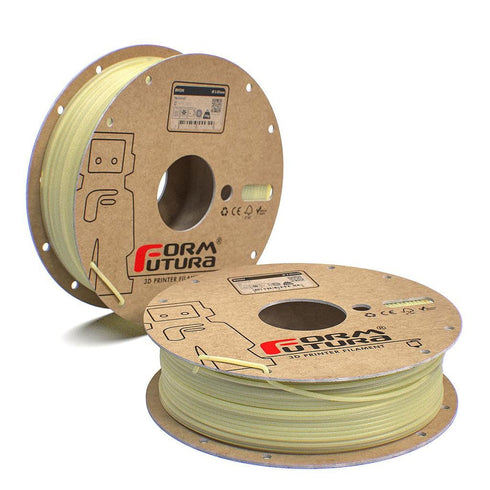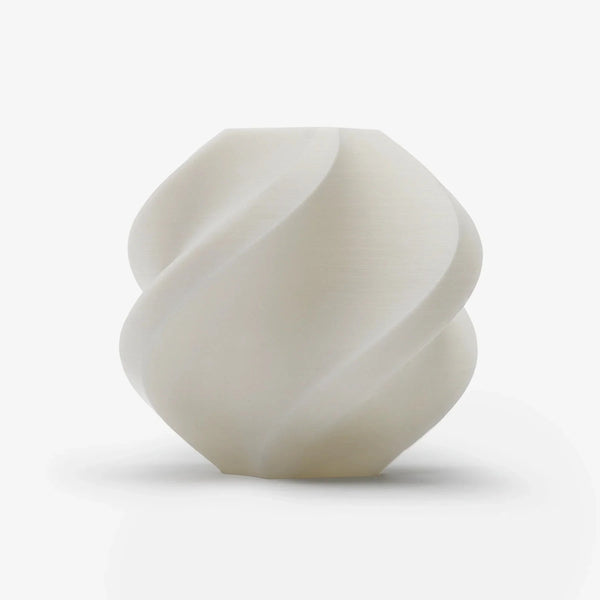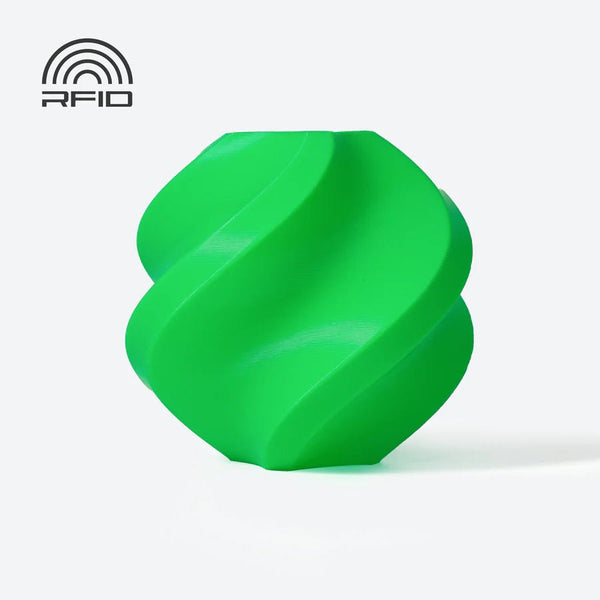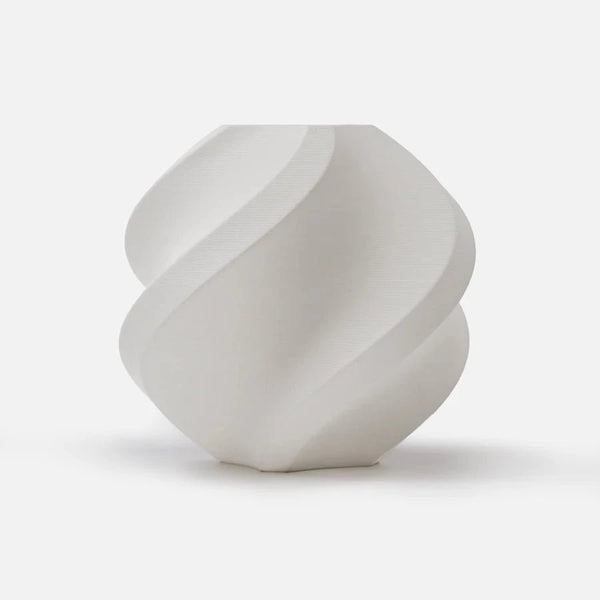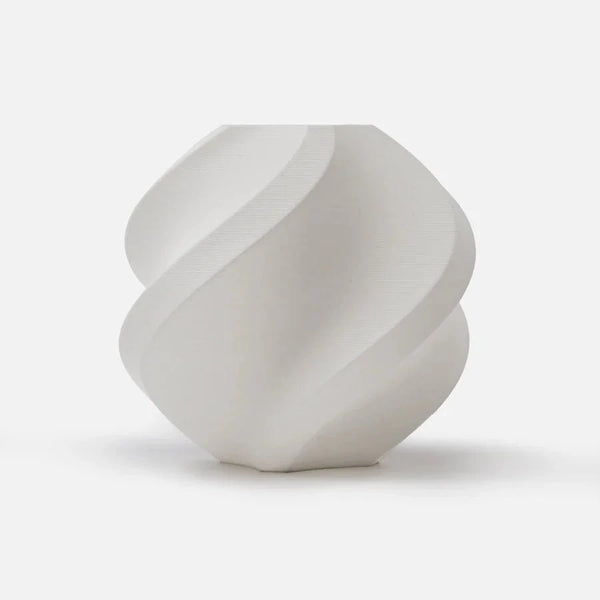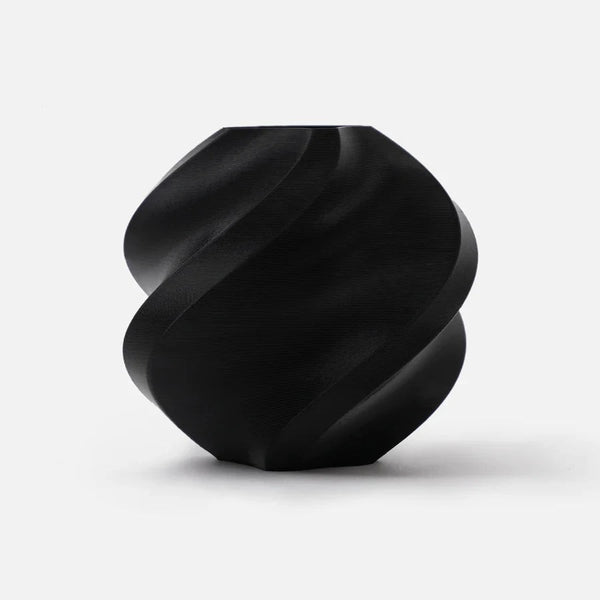Formfutura BVOH (1.75mm 300 gram)
SKU: BVOH-175NTRL-00300
VENDOR: FormFutura
Pickup available at 7A Kent Street, Yarraville, VIC.
Usually ready in 4 hours if in stock
Formfutura BVOH (1.75mm 300 gram)
Default Title
7A Kent Street, Yarraville, VIC
7A Kent Street
Yarraville VIC 3013
Australia
03 9687 8638
FormFutura's BVOH - Butenediol Vinyl Alcohol Co-polymer - 3D printer filament is an advanced water-soluble support material for complex multi-extrusion 3D printing. BVOH bonds to nearly all 'build materials' and it dissolves in water at a faster rate than PVA support materials. Its thermal stability is optimized to eliminate any risk of your hot-end clogging up by thermal degradation.
Key features
- Good bonding with nearly all 'build materials'
- Excellent solubility in water
- Resistant to thermal degradation through optimized melt flow properties
- Eco-friendly
- Waste can be disposed of by flushing it (with water) through any regular household drain
Applications
- Reliable multi-extrusion 3D printing of complex structures that require a water-soluble support material
- 3D printing geometries with large overhangs or complex hollow structures
- PVA molds
General printing guidelines *
| Nozzle side: ƒ?¾ 0.15mm | layer height: ƒ?¾ 0.1mm | Experience level: Expert |
| Print temp: ¶ñ 200 - 230¶ø C * | Fan speed: 0 - 30% | |
| Heat bed: ¶ñ 65 - 75¶ø C | Enclosure needed: No |
*) Above displayed settings are meant as guidance to find your optimal print settings. These ranges in settings should work for most printers, but please do feel free to experiment outside these parameters if you think it is suitable for your printer. There are a lot of different type of printers, hot-ends, and printer offset that it is extremely difficult to give an overall one-size-fits-all setting.
*) Do not exceed a printing temperature of 230Ó?C for a prolonged period of time.
*) Once BVOH has been used or opened from its original vacuum-sealed packaging for a while it is advised to dry the material before using again.
Filament length
| : 1.14 g/cc | 50 gr coil | 0.3 Kg spool | 0.75 Kg spool |
| Ç? 1.75mm | ¶ñ 18.2m | ¶ñ 109m | ¶ñ 274m |
| Ç? 2.85mm | ¶ñ 6.9m | ¶ñ 41m | ¶ñ 103m |
General guidelines for 3D printing with support materials like PVA and BVOH
Printing with support materials, in general, isnƒ??t plug and play and does require a fair amount of 3D printing expertise as there isnƒ??t a generic one-size-fits-all setting for multi extrusion 3D printing with PVA and/or BVOH filaments. The optimal 3D printing settings for support PVA and BVOH filaments can even vary between the same models of 3D printers.
One of the most common challenges is to establish a good bond between the PVA and/or BVOH support material and the primary build material. Below parameters are of utmost importance to establish good bonding between the 3D printing materials.
- Verify the extrusion distance between the printed object and the support material.
- Typically the default setting in most slicer software is set at an extrusion distance of 0.1 - 0.2mm, which is optimal for break-away support materials. For water-soluble support materials, we recommend turning this setting down to 0.0mm.
- The displayed printing/nozzle temperature should be accurate.
- If the temperature deviates up to or over 10¶øC from the intended printing temperature, this may negatively impact the flow of your support material. How big this deviation is wildly varies depending on the printer you're using.
- Make sure your printer is properly leveled. Avoid height differences across the multiple nozzles.
- To verify your nozzles are leveled, we recommend 3D printing a small rod (e.g. 5cm x 1cm with PLA) and switching nozzles every 1 - 2 layers to detect any imperfections in the layers.
Product export information
| HS Code: 39169090 | Description: Monofilament | Country of origin: the Netherlands |
Compliance *
This filament is compliant to the directives and regulations listed below:
- RoHS directive 2011/65/EC
- REACH directive 1907/2006/EC
*) This declaration of conformity to directives and regulations is prepared according to our present standard of knowledge and may be amended if new cognitions are available and applies only for the above-described products.
